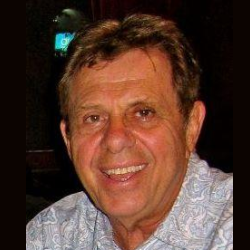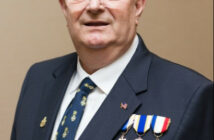by George Matsoukas, Executive Director of Orthodox Christian Laity
The Orthodox Christian Church is in the Paschal Season. Having attended the many services of preparation for the Resurrection of Christ and as we await Pentecost, we know that the Holy Spirit is present everywhere and that brothers and sisters must dwell together in unity, which is the Christian norm. During this season, we must continue to pray that the Assembly of Canonical Orthodox Bishops finds the humility to move ahead with their work of developing the blueprint and foundation for a unified Church in the United States. We must pray that the working committees keep moving ahead. We must pray that the September Meeting of Bishops will be productive. We must try to support the work with donations. We need to inform ourselves of the progress by checking out and offering comments to the Assembly website: www.assemblyofbishops.org . Study the background leading up to the Assembly on the archives of OCL at http://archive.ocl.org/?id=18027 and at http://www.assemblyofbishops.org/about/assembly-timeline.
This is urgent business on our part. Why? I was recently sent an article written in the Orthodox Observer, October 2002, reporting on the International Conference on Orthodox Churches and Pluralism held at Holy Cross School of Theology on October 5 of that year. Archbishop Demetrios was a participant. The Very Reverend George Tsetsis represented the Ecumenical Patriarch at the World Council of Churches and was also a participant. He called upon the Church to take an active role in resolving ethnic conflicts. “We are today the powerless witnesses of the end result of …fragmentation,” he said. . . . “When the Orthodox Church not only cannot speak as a single body but, even worse, is unable to convoke its Great Council that “has been in preparation for 41 years now.” That was ten years ago, so now it has been in preparation for 52 years.
We all need to be vigilant at the historical crossroad that we are all a part of by working together to make the work of the Assembly of Bishops meaningful, a model for unity, and a catalyst to bring about the convening of the Great and Holy Council. The Holy Church of Christ seeks the unity of Orthodox Christianity so that it can provide a proper response to our global and fragmented world.
[subscribe2]




2 Comments
From one of our readers:
A Tale of Two Easters
Since roughly 300 A.D, the Christian churches have not been able to agree on one date for Easter. This is a travestity!
This one thing alone should be a starting point for Orthodox unity within their own ranks…AND with other Christian sects.
Imagine the havoc and wagging heads if the current factions insisted upon two different Christmases!!
I feel very strongly that it doesn’t matter which day of the year we celebrate Easter…as long as we celebrate it!
Except for the church elders, the church members really don’t care about being historically accurate about the date and time of the resurrection of our Lord. We all know it happened almost 2,000 years ago, and that we are symbolically celebrating this event each year in remembrance and renewal.
I know I am preaching to “the choir” …because we all know how ridiculous this situation is, and that we Christians lose credibility due to the lack of agreement over the most important religious event in our faith.
Please, let’s use this problem as a unity building issue…and other great things will come!
In Christ’s Love,
Stathie John Prattas
Kailua-Kona, Hawaii
Unfortunately, Stathie, the current factions do insist on two different Christmases–Old Calendar and New Calendar, about 13 days apart. For many years the rationale for not scheduling the next Great and Holy Ecumenical Council was that a number of our major Orthodox Catholic Churches were under Communist domination and dictatorship so could not honestly and freely participate. That excuse ended about a quarter century ago. I am unaware of any legitimate excuse today! Question–When the Church in America was united until after WWI, why are we unable to now restore that administrative unity?